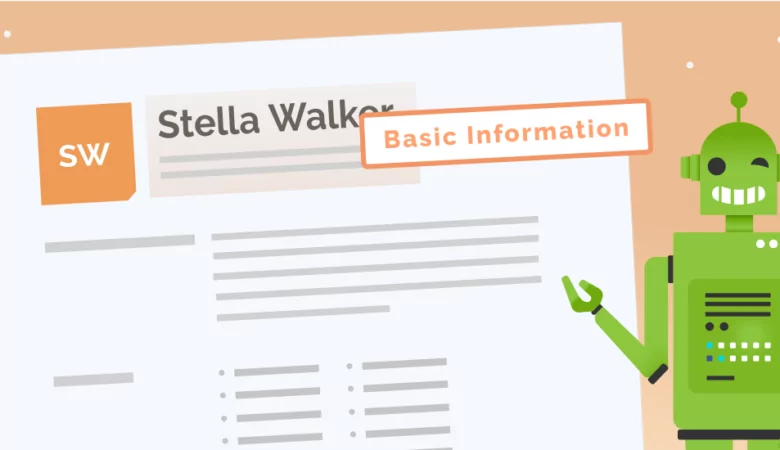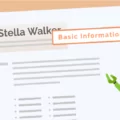A theater resume will often feature very specific skills. Use this theater resume example to write a high-quality theater resume that will get a callback every time.

Theater Resume Examples to Help You Succeed This Year
Theater Resume Example
A theater job will often require a number of skills that you don’t use in most typical positions. However, you’ll still want to turn in a traditional resume when hunting for this type of job. Whether it’s an acting resume or a resume for a more managerial position, this resume example and tips can help you get more callbacks for a job interview.

Jobs That Can Use Theater Resumes
An actor resume isn’t the only type of resume that you might need to write for a theater job. Here’s a list of jobs that you might apply for with a theater resume.
- Musical theater performer
- Improvisation actor
- Broadway actor
- Production company worker
- Voiceover expert
- Casting director
- Stage manager
If you’re in the performing arts industry at all, you can use our samples to write a more professional resume.
Important Elements for Theater Resumes
When writing your theater resume, you will want to include each of the following sections:
Header
An acting resume needs to start with providing contact information, such as a phone number, email, professional social media links, like your LinkedIn profile, and job title (e.g., “John Smith, Actor”). Check to see whether you should include a headshot as well. Some organizations may require one, while some would prefer not to have a headshot until they ask you for an interview.
Resume summary/objective
At the top of your resume is a resume summary or resume objective that should take a few sentences to highlight the most qualifications in your resume. The main difference between the two is in the content. A resume summary will show off any notable acting credits or experiences that you’re especially proud of, while a resume objective will instead state the special skills and education you have, then indicate your career goals.
Skills
You should have both hard skills, which are technical skills that you have been trained up in, and soft skills, which are more interpersonal and generally applicable to most any job, in your resume. Here are a few key skills you might want to include in your skills section:
- Improv skills
- Dancing skills
- Stage combat
- Public speaking
- Time management skills
- Communication skills
- Teamwork
Remember to look through the job description to see what kinds of skills you should include when writing the perfect resume. Any skills mentioned in the job description should be on your resume, if possible.
Work experience
Your work experience section should be in a reverse-chronological format, with your current or most recent job first. If you’re applying for an acting job, you can include specific professional roles you’ve had in a separate “Credits” section. Remember to also include the director’s name and potentially a bit of information about the production.
Education
While some positions, especially internship positions, may allow you to apply directly out of high school, it’s most common for theater companies to want you to have a Bachelor of Fine Arts (BFA) in acting. Fill out your education section with any education experience or specialized coursework you have in these areas.
Certifications
If you have any certifications, you can include them here. Membership in the Screen Actor’s Guild (SAG) is especially important to include for screen acting.
Optional sections
You may also want to include a short profile section indicating important characteristics like your hair color, eye color, and vocal range, as these are sometimes important for a theater job.
Theater Resume Examples You Can Use
If you’re looking for a theater resume example that can walk you through exactly how a resume should look, check out ResumeNerd’s resume examples. When you’re ready to write, you can get step-by-step instructions on how to write a resume from the ResumeNerd blog, as well as help from the resume builder.
-
Tips for Creating Your Theater Resume
Here are some additional tips to keep in mind when writing your theater resume:
- Focus on details in your resume summary or resume objective that showcase your best skills. If the hiring manager can only read this paragraph, it should be enough to get you the job.
- If you have more than 10 years of experience, avoid listing it on your resume. Instead, put that experience in your professional social media links, like your LinkedIn profile.
- Be specific with your past theater roles. Include bullet points stating your job activities, like “Provided guidance for stage makeup” or “Communicated with backstage members.”
FAQ: Theater Resume Examples
It’s always a good idea to submit a cover letter alongside your resume. Even if the job description doesn’t specifically state that you need one, a cover letter is a great way to express more about your experience and any special skills that you want to present to your hiring manager. Plus, it shows that you’re passionate about this field.
Oftentimes, entry-level theater jobs don’t require as much experience. Although having 10 years of experience will certainly benefit your resume, start by applying for smaller jobs or positions with smaller companies. Once you get these jobs, you can then move up into larger jobs and more prominent companies and directors.
Yes. You should never submit the same resume to two different job postings. Instead, read through the job posting and look for specific requirements that the job is asking you to fulfill. Include those requirements, which are also called resume keywords, in your resume for a better chance at the job interview.








